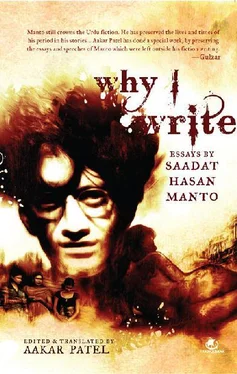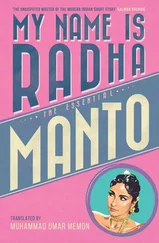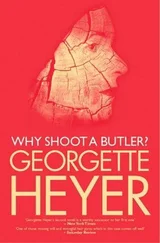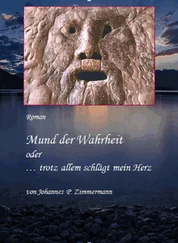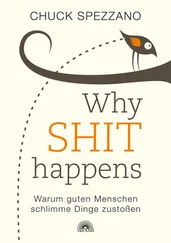I don’t want to say much about this, save the fact that it is beyond my understanding, as many other things are.
I can understand the aggressive capitalism-loving nationalism of America. I also understand the real meaning of Russia’s hammer and sickle. But what happens here, in Pakistan, is beyond me.
It’s possible that what’s happening is too sophisticated for me to follow, I accept that, but it’s possible also that it’s too crude for me to follow. I shall always regret that there’s been nobody to explain this to me.
What can a short story writer make of the pact with America that arms us? Then what can he make of our military pact with, of all nations, Turkey? He cannot even wonder what became of the inquiry into Liaquat Ali Khan’s assassination. He dare not ask whether Liaquat’s killer, slain immediately by the mob, received justice or whether he was also murdered unjustly.
A short story writer can, however, ask what the two potholes on the lane leading to McLeod Road from the Telegraph Office mean. Those two potholes may have been perhaps filled over by now. But the truck that fell victim to them is certainly still there.
It isn’t clear how long it will remain there wounded, asking, as I am, what the meaning of those two potholes is.
If they were dug to ensure that in the night’s insufficient light, tongas fell into them, horses died or were crippled, cyclists fractured their limbs or some motorcyclist singing film songs was made to see stars, if they were dug for this reason, I have no problem with them.
Perhaps the municipal corporation should do this sort of thing to keep citizens alert. But if I were to actually say this, that I have no problem with it, the government might get me. They might say: ‘Well, you don’t have a problem with it, but we do.’ Truth be told, taking objection and having a problem with things around us isn’t done these days.
I told you that I haven’t yet understood my place in Pakistan. I assume that I’m some great literary figure. I’m told I am a writer of some renown in Urdu literature (if that also were untrue, life would be even more unbearable). I have now discovered something of my real standing, and the meaning of those two potholes. They may seem unimportant, but are actually most important.
Seemingly unimportant because people may get hurt even without them. The unending and silly accidents would have continued to plague us here. Important, because they demonstrated that life could go on without the corporation.
A while ago I got a notice from the corporation saying I was an unwanted person, and ought to empty the house allotted to me. I thought this notice was itself quite unwanted.
Anyway, a few days ago I left the Tea House and hailed a tonga. When we neared the Telegraph Office, I thought we should go to Beadon Road from McLeod Road so that I could buy some flowers for my three little girls.
As the tonga turned towards McLeod Road, I suddenly spotted two monstrous holes directly in front. I’m astonished I saw them at all, for I’m quite blind in the dark. I screamed.
The alarmed coachman yanked his reins and the horse stopped. So violently did he rear that the tonga went a couple of feet back. If he had stepped forward another foot, we would have fallen in. The coachman thanked me profusely for saving his horse from injury. A few yards away we could see a collapsed tonga and its crippled horses whimpering in pain.
Now here’s the first thought that came to me: Pakistan’s finest short story writer has been saved. I thought of the nation at this point, not my wife or my three little girls.
I thought of myself as the nation’s property, saved from damage and destruction. The truth is of course that had I died, it would have been the end of an “unwanted person”.
A few loved ones and a couple of friends might have shed a tear or two. But this nation, which I thought I belonged to, would have no tears for me.
Many things continue to remain beyond my understanding but I particularly can’t figure out why these two potholes near the Telegraph Office did not have warning signs around them.
Boards to inform passers-by: ‘Look, if you want to kill yourself, please fall in. But in fact if you want to live, please avoid this place. If god had wanted you dead, He’d send you on your way to the promised land even on a straight and safe road.’
That they did not put up such a board is a mystery. Certainly it is beyond the understanding of a mere writer of stories. But even so he must ask — what was the nature of this mystery? If nothing else, he could have made a little story of it.
Near the Telegraph Office, where some time ago were two potholes, a wounded truck still stands, on three wheels, and a lot of bricks. I’m not sure what it’s trying to say to me, or to the corporation.
In my opinion, the government should immediately set up a commission to investigate those potholes. It can produce enough paperwork to fill up those two holes, and take long enough in doing so to ensure that other holes are dug in the meantime so that yet other commissions may be formed.
Those two potholes — zindabad!
And horses and humans that fall into them to die — murdabad!
— (Originally published as Do Gaddhay)
Manto loved India’s culture, which he did not see as belonging to any one faith. On reaching Pakistan, he was distraught to learn that the government was discouraging firecrackers and kites, seen as Hindus’ way of celebration. Muslims in India had long been emulating Diwali through one of their festivals, Shab-e-Barat. In response to the puritanism that had begun creeping even in the early 1950s, Manto wrote this piece of short sketches to show the absurdity of cultural bans. Even today, kite-flying is discouraged in Lahore during the spring festival of Basant. The politicians and courts give out the logic that it is to prevent people from getting cut by kite-string. Here is Manto’s absurd response to such absurd thinking.
News item:
To save Pakistan’s children from the curse of fireworks, an organization was formed recently. The Anjuman Insidaad-e-Patakha jaat (Organization for the prevention of setting off fireworks). Its president will sit in the head office at Baroodkhana. It is hoped that branch offices will soon open in Russia, America and England.
Second news item:
This year twice as many children died from firecracker burns as last year. Pakistan’s parents are anguished by this and have asked the government that it should legislate the maximum number of children who may be burnt to death in a given year.
The government in response has constituted a new ministry. The man running it will be called Minister Crackers. It is reported that two senior refugees from Indian Punjab are squabbling over the job.
A conversation:
A father: It isn’t right to set off crackers.
Boy: Why not?
Father: It’s a waste of money.
Boy: We set off so many explosions in war. Isn’t that a waste of money?
Second conversation:
A boy: I’m not going to set off crackers.
Father: Why not?
Boy: I’m very responsible.
Father: What’s that?! Let’s go see a doctor. I’m sure there’s something wrong with you.
A lesson:
Don’t ever eat radish ( mooli ) in the winter. And on the night of Shab-e-Barat, don’t set off crackers.
Another lesson:
Eat radish only in the summer and other than on the night of Shab-e-Barat, set off crackers every day.
An investigation:
Experts on religious purity after much investigation have concluded that it is natural for humans to set off fireworks in celebration. Twenty thousand years ago, in the time of Prophet Az, a human head was used as a firecracker. But later, slowly, as people came to realize that each cracker burst meant one less human being, they invented other crackers.
Читать дальше
